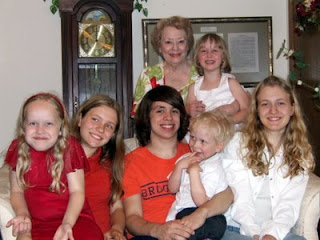 Where I live in Central Kansas, we're surrounded by several fine, small scale Christian colleges, each with a rich Christian tradition.
Where I live in Central Kansas, we're surrounded by several fine, small scale Christian colleges, each with a rich Christian tradition.To the southwest is Sterling College (Presbyterian). To the north is Kansas Wesleyan (United Methodist) and Bethany College (Lutheran). To the east is Tabor College (Mennonite), McPherson College (church of the Brethren), and Central Christian College (Free methodist). To southeast is Bethel College (Mennonite), and in Wichita is Friends University (Quaker) and Newman University (Catholic). Nine places--all within a two-hour drive!
Recently I had lunch with a college student in my church whose attending one of these places (which one is not disclosed for reasons you're about to see). My friend was looking for help in preparation for his oral exam in his pass/fail religion class.
"So what's on the test?" I asked. The teacher made the class do two things.
First, they had to read the book of Deuteronomy. My friend said, "I thought that was kind of strange." I did too.
But as I thought about it further, it actually makes a lot of sense. If you were only read one book in the Old Testament, Deuteronomy is the basis of God's relationship with his people Israel. Reading it gives you the key to understanding every other Old Testament book and gives you a good start in appreciating the New Testament.
"The second thing we had to do," my friend said, "is read this book."
I couldn't believe what I was holding in my hand. It wasn't the book itself that bothered me. In that regard, it was excellent.
"You know what this is," I said, "It's something you would read in an advanced hermeneutics course in a seminary, not in a pass/fail introductory religion class at college."
"Yeah," my friend replied, "I can't wait to sell it."
Which leads me to an observation: In a college-level, introductory religion class, wouldn't it make better sense to assign a book that would inspire students to learn more about God and His Word, rather than drown and frustrate him/her?
My friend passed his class. He'll sell his book. And I trust, keep walking with Jesus.
But I can't help thinking that the teacher didn't get full-advantage of the college discipleship moment.







































